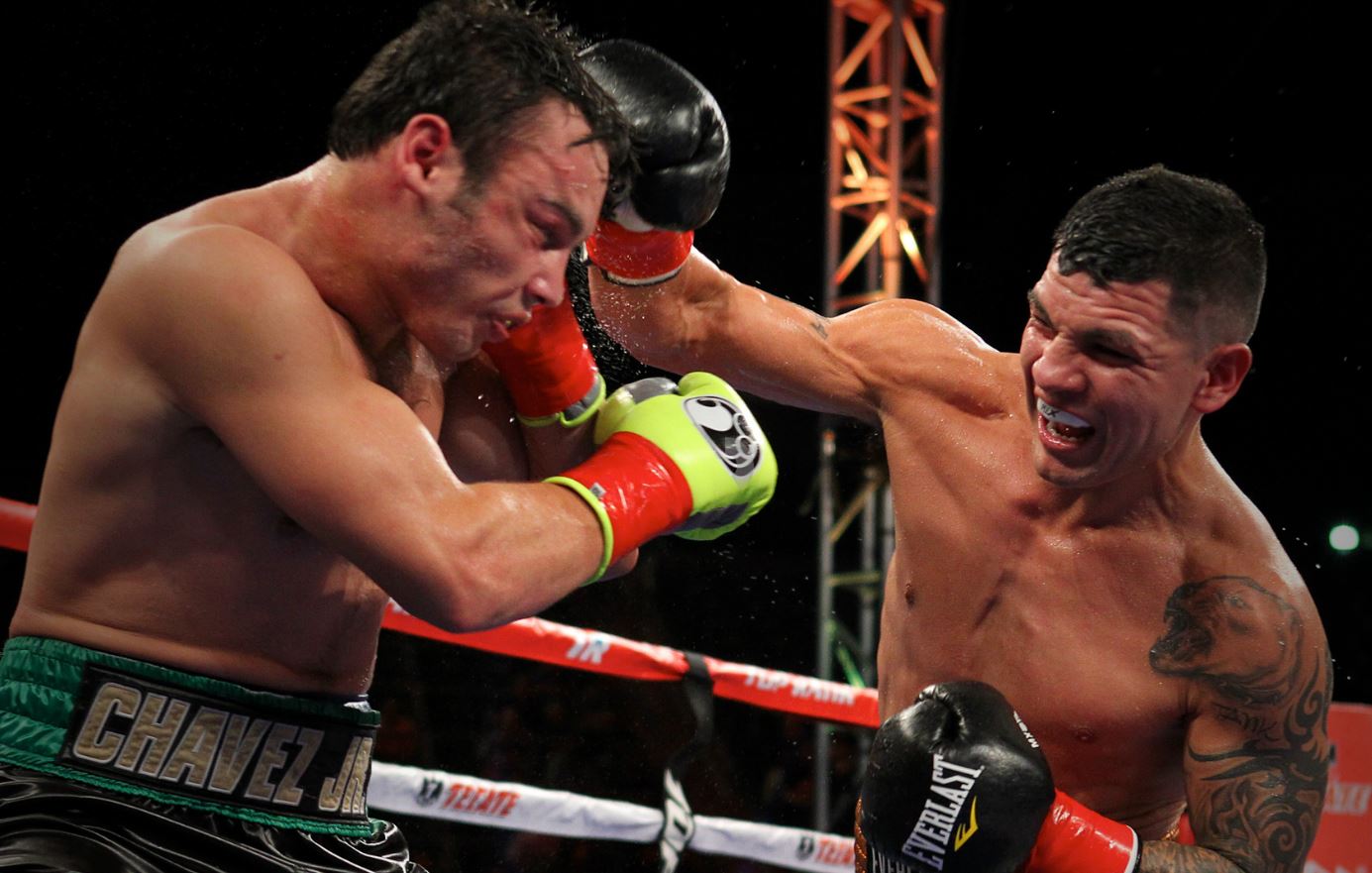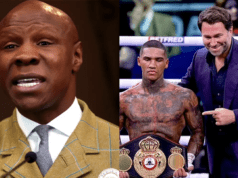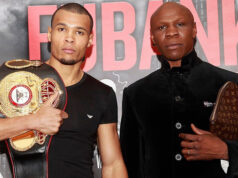Choice of Texas for Chavez Jr vs. Vera Rematch Stinks Already:
Once upon a time, Julio Cesar Chavez, Jr. was derided as the paper contender whose success was due entirely to the luster and connections offered by his family name. Starting in 2011, Chavez, Jr. started doing the lifting necessary to build a new reputation as a serious, hard-fisted contender. He beat Sebastian Zbik, Peter Manfredo, Marco Antonio Rubio, and Andy Lee in straight sets. All four were fringe contenders, but in beating four such individuals a row justly established Chavez as a solid world class middleweight.
Then Chavez had his showdown with Sergio Martinez, the middleweight world champion. All of the WBC’s political machinations, which allowed Chavez to lift Martinez’s belt without facing him, were forgotten as the pair got it on. Even though Martinez boxed Chavez’s ears off for 11 rounds, that Chavez still had gas in the tank and the power to pound Martinez into a pulp in the last stanza helped the Mexican retain his standing as a serious, world class boxing star who had to be taken seriously in his own right.
Everything was looking good for JCC, Jr., but then he started scoring own goal after own goal on himself. The first sign that Chavez was slipping was when he tested positive for marijuana after the Martinez bout, which earned him fines and a lengthy suspension. Although hardly the worst thing, one has to wonder what Chavez was thinking smoking pot in his training camp for the biggest fight of his life, nevermind knowing full well that he would be tested for drugs at that fight. The only answer is that Chavez simply didn’t care whether he got caught or not, nor did he care if his lifestyle choices impacted his in-ring performance.
Those lifestyle choices partly explain Chavez’s move up to super middleweight, since he had basically been a light heavyweight fighting two weight classes down for at least a couple of years. Yet for his first bout at his new weight class, Chavez came in scandalously overweight, and looked terrible against fringe contender Bryan Vera.
Compounding a bad situation, Chavez robbed Vera on the scorecards in one of the worst decisions of 2013. The decision was so wretched that of 60 journalists and bloggers who were polled after the fight, 54 had Vera winning, four scored the fight a draw, and only two thought Chavez had very narrowly won. Everyone thought judges Marty Denkin and Gwen Adair were watching the fight from the moon, so far off the mark were their scorecards.
Chavez did the right thing by agreeing to an immediate rematch with Vera, because there really is no other way to erase the taint of such an awful and staggeringly blatant robbery. Yet by staging the fight in Texas, the stinkiest state for boxing in the Union, Chavez has likely undone whatever benefit he has gained from agreeing to said rematch. That Vera is a Texan himself counts for little, as he will receive no local boy advantage on his notoriously dodgy home turf. That will go to Chavez, the guy with the big promotional muscle.
Ergo, if Chavez does not knockout Vera or beat him from pillar to post for every single one of the ten rounds of the fight, the outcome is automatically suspect. Chavez, his manager, and his public relations person must have been smoking together when they signed off on Texas as a venue. Going to Texas for the rematch was the last straw for Chavez, blocking out the solid reputation he earned in 2011-12, and leaving only the guy who got to the top on the basis of a famous name and crooked connections.











